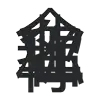The Box primitive
Rust has a cool built-in feature called Box<T>. It’s kind of like a pointer, a “smart pointer”.
More specifically, Box<T> is for heap-allocated values that are not known at runtime. It has a known, fixed size.
It looks like this:
fn main() {
let boxed_value = Box::new(5); // Allocate an integer on the heap
println!("Boxed value: {}", boxed_value); // Access it like a normal value
}
Dynamic runtime values
Box<T> can also be used for things where data might be dynamic, or a specific run-time instance of a trait might not be known at compile time.
In this sense, it can be used for polymorphism.
trait Drivable {
fn drive(&self);
}
struct Car;
impl Drivable for Car {
fn drive(&self) {
println!("vroom vroom imacar heh")
}
}
struct Tractor;
impl Drivable for Tractor {
fn drive(&self) {
println!("glug glug ima traktor");
}
}
fn main() {
let mut vehicle: Box<dyn Drivable> = Box::new(Tractor);
vehicle.drive();
// can later change the value in the box to a Car
}
Recursion
Lastly, another use for box: recursion.
enum List {
Cons(i32, Box<List>),
Nil,
}
fn main() {
let list = List::Cons(1, Box::new(List::Cons(2, Box::new(List::Nil))));
}
In this example, Box allows you to create a recursive List type by heap-allocating each list node.
 Last modified:
Last modified:  Last modified:
Last modified: